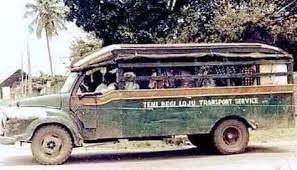From the past to the present, Nigerian youths are known for their ability to work hard, using their creativity and creating ideologies or strategies to ensure they earn a living and, to a large extent, contribute to the economic growth of the country.
Nigerian youths, especially in the past, have been known to make efforts in some areas such as farming, ranching, and arts and crafts. Both men and women indulge in activities that increase their standards of living as well as promote the economic sphere of the country, in terms of per-capita income and human development index.
In Nigeria, a larger percentage of men indulge in tedious jobs because society perceives them as able-bodied and full of energy and strength. However, while the past generations are seen as the ones who believed in hard work such as black-smith, gold-smith, farming, and bricklaying, among others, the recent advent of civilization has created fewer energy-driven jobs. Rather, there has been an increase in jobs that require creativity, skills, and certifications.
According to history, some hard-working men who started from scratch in their careers, but because of their relentlessness and goal-driven energy, have created wealth, provided job opportunities, and, to an extent, increased the economic potential of the country.
One such man is “Adegboro,” who is popularly known as “Agbero loja oba.” In history, Adegboro is perceived as a dedicated, energetic, hardworking, and focused man, who was known for his “Agbero” business both in Ibadan and Lagos.

Because of his inability to make a living in Ibadan, despite many attempts and hard work, Adegboro decided to relocate to Lagos for greener pastures. When he settled in Lagos, he started to carry loads for people in the Oyingbo market, known as “Alabaru” in Yoruba, for him to make ends meet.
A few years later, Adegboro decided to get creative to ease his stress, and at the same time, save time and make more money. He used his savings to purchase a cart, which made carrying loads on his head for work purposes less painful.
To make his business more lucrative as well as to earn more and create job opportunities for young men like him, he decided to invest more in his ‘alabaru’ business. Thus, he was able to buy six more of the same kind of carts, which he rented out to other people, and the carts also improved his revenue.
After precisely eight years in the cart-pushing industry, Adegboro purchased a van that was popularly known as the BOLEKAJA, learned to drive and took over management of the company. Adegboro had been the proud owner of six vans throughout the first four years of the Bolekaja company.

As a true Ibadan native, Adegboro constructed a magnificent structure at a market in Ibadan named Oja Oba, where the Olubadan Palace once stood, as his place of residence. Adegboro was frequently approached at this time by those who wanted to learn the key to his success.
History has it that anytime Adegboro was asked about the key to his success, he often asked them whether they could make money by carrying loads on their heads in the market (alabaru). However, their response had always been “never.” In the past, Yoruba people perceived the alabaru business as a dirty job for people living in abject poverty.
He would also utter the phrase “Eni ti o le se Alabaru l’oyingbo, ko le se bi Adegboro l’oja oba” on the spur of the moment.
Thus, this particular adage is used by the Yoruba people to advise young people to be hardworking, that there is no shortcut to being wealthy, except through hard work.





